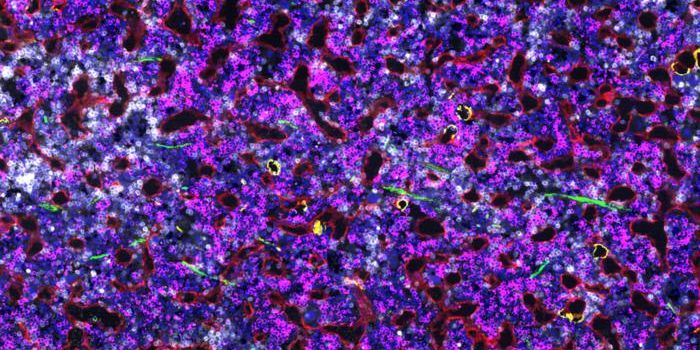Chronic jet lag raises cancer risk
We all know how horrible it feels to have a bad night of sleep. That feeling is only intensified with jet lag because our bodies are trying to adjust to being awake when they think we should be sleeping. But you get over it, and no harm was done, right?
Wrong. New research published in Science Advances suggests that circadian rhythm disruptions like chronic jet lag have serious implications on the body’s ability to fight cancer. In such scenarios, the stressed cells resulting from chronic jet lag alter the microenvironment surrounding tumor cells, creating conditions favorable for tumor growth and limiting the body's natural immune defenses.
"A key takeaway from this study is that if someone has a proliferative disorder, in this case, melanoma, doing shift work or regularly changing time zones could exacerbate the problem by dampening immune system response to tumor growth," said corresponding author Carla Finkielstein, who is an associate professor at the Fralin Biomedical Research Institute at VTC and Virginia Tech's College of Science, as well as director of the Molecular Diagnostics Laboratory at the Fralin Biomedical Research Institute. "This research also helps explain why some tumors win the race when a person is exposed to the chronically stressful conditions that occur when the environment and the body's clocks are misaligned."
The researchers looked at how the “clock” genes in mice models with melanoma were affected by the manipulation of light. Because our bodies normally regulate our physiological and molecular clocks from signals based on consistent intervals of light and dark, the researchers exposed one group of mice to a normal circadian schedule and another group to a schedule simulating chronic jet lag.

"We combined two different approaches of chronobiology research to study the effects of circadian desynchronization on both tumor growth and immune rhythms, and we found a link," said corresponding author Diego Golombek, a professor at the National University of Quilmes in Argentina. "You need optimal rhythms in immune cells and immune humoral factors to quell rapid tumor growth. When circadian rhythms are chronically disrupted, these rhythms are impaired, inverted, or disappear entirely, which could help explain why the tumors were significantly larger in the desynchronized group."
The jet lagged group showed tumors almost 3 times the size of the control group. “Our findings show that tumor growth rate increased and latency decreased under circadian disruption conditions compared to normal light-dark (LD) schedules in a murine melanoma model,” write the authors. “Circadian disruption induced the loss or inversion of daily patterns of M1 (proinflammatory) and M2 (anti-inflammatory) macrophages and cytokine levels in spleen and tumor tissues. Circadian disruption also induced (i) deregulation of rhythmic expression of clock genes and (ii) of cyclin genes in the liver, (iii) increased CcnA2 levels in the tumor, and (iv) dampened expression of the cell cycle inhibitor p21WAF/CIP1, all of which contribute to a proliferative phenotype.”
The team hopes to continue exploring how circadian rhythm disruption influences immune genes and cell cycle genes in tumors.
Sources: Science Advances, Science Daily








